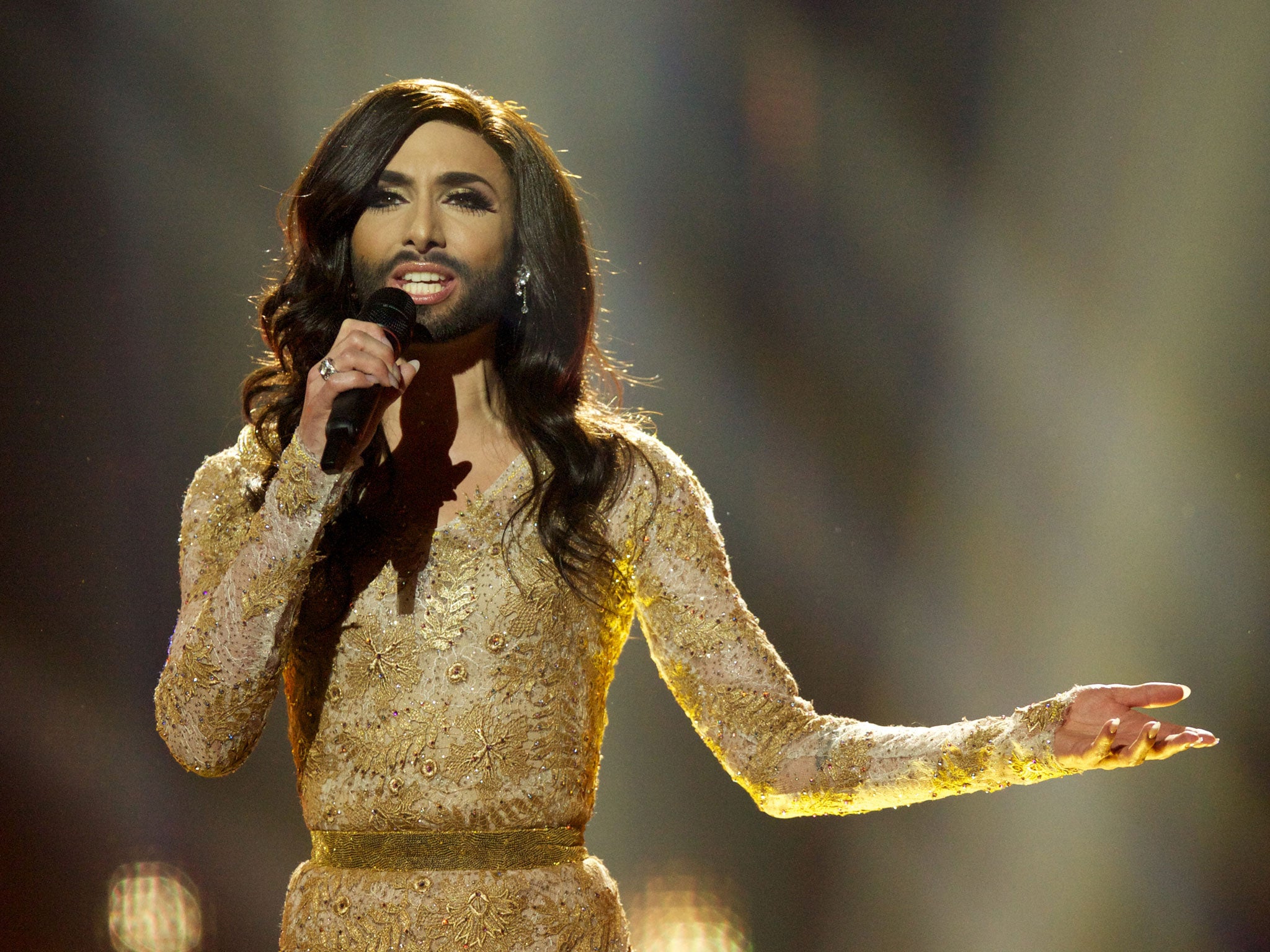Eurovision 2015: When are the semi-finals and final taking place - and what happens?
Make a note for your diaries - the first semi-final kicks off on Tuesday 19 May

Your support helps us to tell the story
From reproductive rights to climate change to Big Tech, The Independent is on the ground when the story is developing. Whether it's investigating the financials of Elon Musk's pro-Trump PAC or producing our latest documentary, 'The A Word', which shines a light on the American women fighting for reproductive rights, we know how important it is to parse out the facts from the messaging.
At such a critical moment in US history, we need reporters on the ground. Your donation allows us to keep sending journalists to speak to both sides of the story.
The Independent is trusted by Americans across the entire political spectrum. And unlike many other quality news outlets, we choose not to lock Americans out of our reporting and analysis with paywalls. We believe quality journalism should be available to everyone, paid for by those who can afford it.
Your support makes all the difference.The voting procedure for Europe’s largest and cheesiest singing competition surely can’t be that complicated, can it?
For Eurovision aficionado's the 50/50 telephone-jury process is old news, but if you're confused by the existence of two semi-finals and want to know what "nul point" really means, look no further.
Forty countries will compete in the Eurovision 2015 final, up from last year's twenty-six and including Australia as a random but special one-off to mark the contest's 60th anniversary.
These countries are whittled down in two semi-finals. The ten countries with the highest scores from each semi-final will quality for the grand final.
Semi-final 1
The first semi-final will take place on Tuesday 19 May in Vienna, Austria.
The 16 countries taking part will be: Moldova, Armenia, Belgium, Netherlands, Finland, Greece, Estonia, Macedonia, Serbia, Hungary, Belarus, Russia, Denmark, Albania, Romania and Georgia.
Austria, France, Spain and Australia will vote in this semi-final.
The ten highest-scoring acts will go on to win a place in the final, six will be eliminated.
Semi-final 2
The second semi-final will take place on Thursday 21 May in the same venue.
It will feature 17 different countries to the first semi-final, which takes place two days beforehand.
The countries taking part will be: Lithuania, Ireland, San Marino, Montenegro, Malta, Norway, Portugal, Czech Republic, Israel, Latvia, Azerbaijan, Iceland, Sweden, Switzerland, Cyprus, Slovenia and Poland.
Italy, Germany, the UK and Australia will vote in this semi-final.
Ten of the highest-scoring countries will be awarded a place in the final.
Grand Final
The grand final will take place on Saturday 23 May, and will be broadcast in the UK on BBC One from 8pm.
Of the 40 countries that have entered this year, only 27 will make it through to the grand televised finale.
Vienna, France, Germany, Italy, Spain, the UK and Australia are all guaranteed a place in the 2015 final.
The previous winner (Vienna this time) is always given an automatic place and will join the so-called 'big five' - the countries that provide the most financial support to the competition - and guest Australia.
Cyrpus and Serbia are returning to Eurovision after their absences last year while the Czech Republic is back after five years. Ukraine has withdrawn for financial and political reasons and there will be no Bulgaria, Bosnia & Herzegovina, Croatia, Turkey, Monaco, Luxembourg, Slovakia or Andorra either.
All participating coutnries' votes count in the Grand Final.
Voting - how does it work?
The voting process in the Eurovision semi-finals and finals are split between the audience telephone vote and a jury vote.
Viewers in all countries are able to vote for their favourite act by telephone, text and the official Eurovision app. The audience vote determines 50 per cent of the outcome, with the other half decided by a jury. You can't vote for your own country.
Each competing country has a jury made up of five music industry experts who cast their votes on who they think are the best entries.
The audience vote and jury vote of each country are then merged and ranked, and points are allocated to the top 10 highest-scoring entries as followed: 12 points – 1st place, 10 points – 2nd place, 8 points – 3rd place, 7 points- 4th place, 6 points – 5th place and so on until 10th place.
The points are then tallied up at the end of the night to determine the overall Eurovision winner.
Join our commenting forum
Join thought-provoking conversations, follow other Independent readers and see their replies
Comments